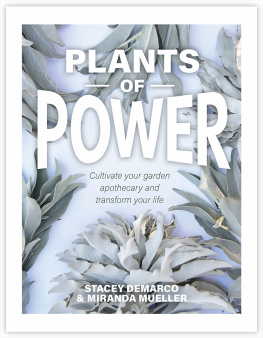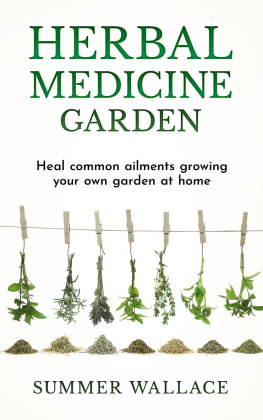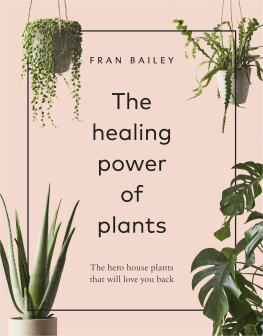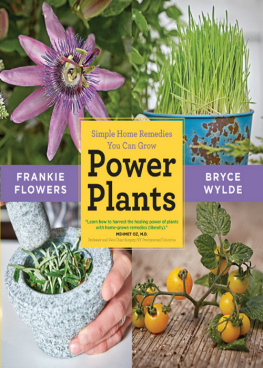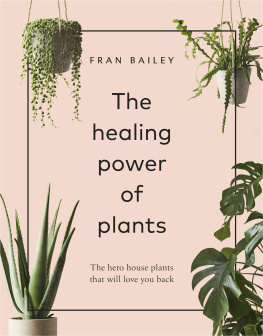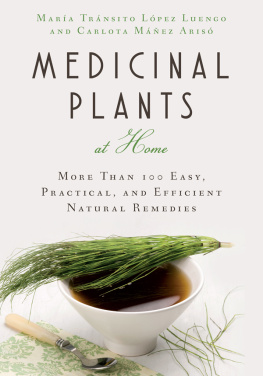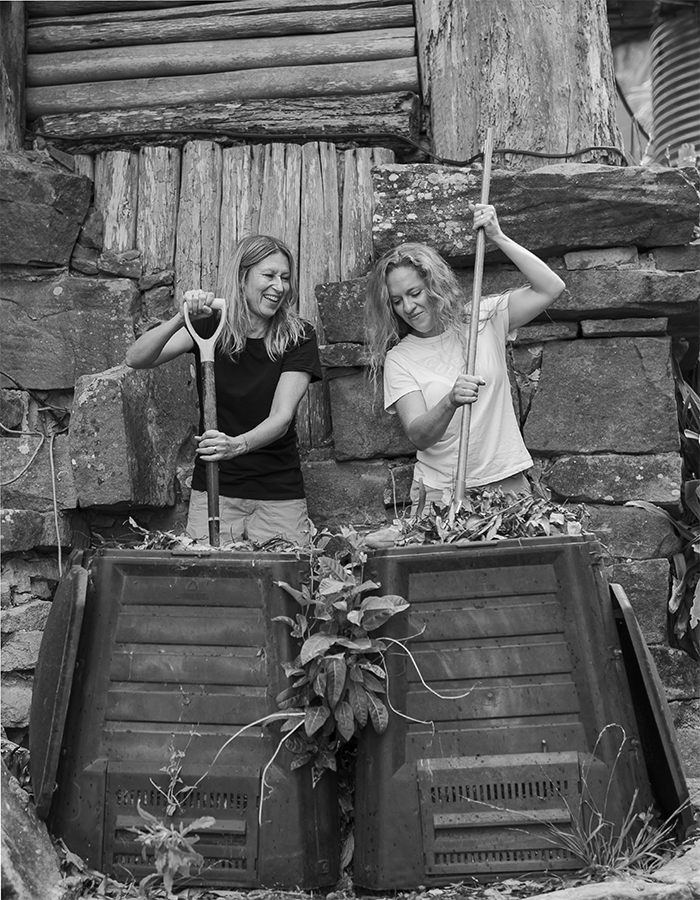Author photographs by Jason Corroto. Images on pages: from our gardens are taken by Miranda and Edana Mueller and Stacey Demarco. Other images by Shutterstock, unsplash and pixabay.
All rights reserved. No part of this publication may be reproduced, stored in a retrieval system, or transmitted in any form or by any means, electronic, mechanical, photocopying, recording or otherwise, without the prior written permission of the publisher.
The information in this book is not intended as medical advice. Check with your health practitioner before using any plant material for medicinal purposes.
Introduction
AN ANCIENT RELATIONSHIP
K now this our ancestors spoke to the plants and the plants replied, telling them what they could do; what talents they had. Long ago, they told us how to work with them, how to receive from them and what our role was in this exchange of mutual benefit, of reciprocity.
Some plants shared that they were for eating and that they nourished us, bringing flavour and enjoyment to life. Some were for healing and were to be burnt, some blended or dried, some diluted and drunk to bring balance.
Some were for the pleasure of their fragrance which uplifted, connected or calmed. And some were strong medicine that enabled us to unshackle ourselves from our regular consciousness and dream big, to connect with the spirits, and see clearly what had to be done for our community in the future.
These days we have science and chemistry to back up what our ancestors observed. We already knew what our plant friends did for us, but perhaps our modern minds crave to understand exactly how plants do what they do.
We already knew white willow bark took pain away and science has converted and concentrated that ability, creating aspirin. We already knew sage cleared the air and purified our spaces and now science confirms that compounds in sage do kill bacteria. Weve always known that some species of wormwood help with lucid dreaming and remembering our dreams, and now science has identified certain alkaloids in their leaves that trigger changes in our brains, in turn affecting the areas of consciousness. We could go on.
With this confirmation, however, sometimes comes a need to control. Talk of how a plant might alter consciousness has increased the chance of that plant being banned by authorities, usually with a campaign of fear. This seems quite unreasonable to herbal practitioners and at odds with grassroots herbalism and those of us who work with plants intimately. For example, in Australia and many other countries, St Johns wort is listed as a noxious, invasive weed and its banned in many regions, with authorities poisoning or burning it when its found. While it is toxic to livestock including cattle, sheep, horses and goats, St Johns wort is highly beneficial to humans and has a very long history of such usefulness, especially as a mood-lifter. Grown responsibly away from bushland or rural areas, confined in pots or flowerbeds and not permitted to set seed St Johns wort can be controlled.
We know of one farmer who had a whole field of the plant but didnt want to burn out his land. Instead, he got the word out that the herb was there for the taking and within a few weeks the entire crop had been harvested by herbalists and distillers for medicinal and magical use. In this case, harvest was the solution.
No one should have the right to take a plant away from anyone else, and no one person or corporation should own a plant. Every plant has contraindications some serious, some not but to ban a plant wholesale because of potential toxicity means we might be banning a huge proportion of plants. Consider the lilies: they are lethal to cats. The oleander is a commonly grown garden shrub so toxic that if you stir your tea with a leaf, youll definitely end in up hospital or even dead. Or the bulb of the common daffodil, highly toxic to both dogs and humans. We have intentionally included some plants in this book that are poisonous or toxic. We believe this is part of encouraging a reverence and responsibility for and a knowledge of the strength of such plants, for indeed they are powerful and also beneficial to us and sometimes to the soil, biome or other plants. (Its not just about us!)
Humans are part of the ecosystem and the faster we reconnect with nature, the faster we will feel better and whole. In these uncertain times of climatic change, many of us are searching for ways to reclaim our connection with the earth. Getting our hands in the dirt and planting for our own health, food, medicine and magic is not just a wonderful way to spend a couple of hours but can be a transformational and revolutionary act.
Plants of Power is a modern guide to the most important plants to include in your own garden apothecary. Weve written it to encourage you to bring the outside in. We offer a guide that is both practical and demonstrates reciprocity, in which you can discover old wisdom, new applications and accurate growing advice. We also share our favourite recipes, and hope they will excite you and give you a practical way to further bond with the plants youre growing. We want to take you by the hand for a stroll through the seasonal wheel of growing, foraging and harvesting these most powerful plant allies, whether for medicine, food or a little touch of magic. And just on that point, word to the wise: any plant that you grow yourself will be a little more powerful than one you buy; as youve shared time and space with a plant it is more likely to collaborate with you in spellcraft.
Your lack of access to land should not dissuade you from planting a seed; theres plenty in this book that will encourage you to harvest from your lawn, or a well-worn path thats in a shared community space. (Community gardens and cooperative growing spaces are well worth considering if youre not able to plant in your own home soil.) Or hey, what about guerrilla gardening on a median strip?

